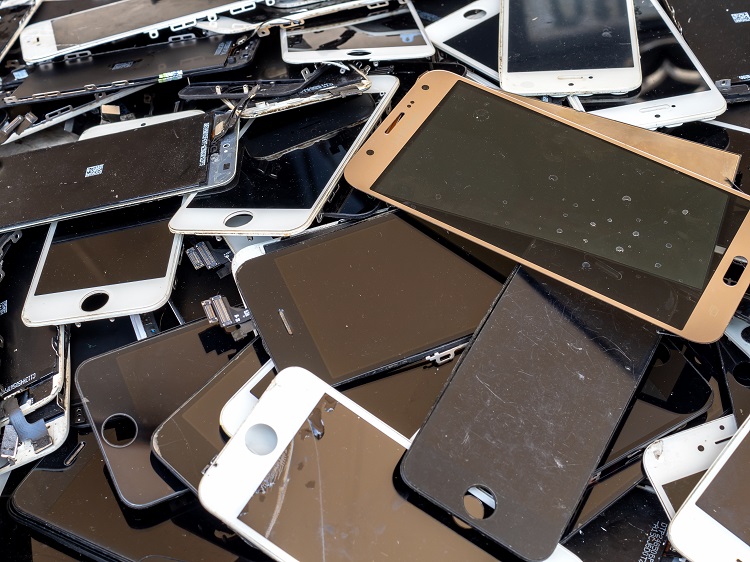 Source: iStock.om/Poravute
Source: iStock.om/Poravute
Smartphones with replaceable batteries are to become the norm again
11. March 2021 Published by Raphael DoerrA few years ago, replaceable batteries and removable back covers were still the norm on mobile phones and early smartphones. In the name of better quality and more effective dust and water protection, replaceable batteries and backs have been gradually phased out in recent years. At the same time, however, this led to more electronic waste, as the entire smartphone was disposed of in the event of a defect. Now the Federal Council has launched a call for a change in the law with its latest publication.
Due to ever-increasing masses of e-waste worldwide, the online edition of the ntv news channel explains that in 2019, approximately 53.6 million tonnes of e-waste were accumulated. According to a study by the United Nations University, this is a growth of 21 percent within five years. And the forecast also leaves a lot to be desired: In 2030, 74 million tonnes are to be expected. Everything that has a plug or a battery is counted as e-waste – including discarded smartphones. That is why the Federal Council (the Bundesrat) recently published a draft amendment to the Electrical and Electronic Equipment Act. In the Bundesrat’s statement, the main focus of criticism is the permanently installed battery in most smartphones and other devices.
Permanently installed batteries in modern smartphones and other electronic devices are a “complete aberration”, according to the Bundesrat’s statement. In order to stop the further production of smartphones and other electronic devices with permanently installed batteries in the future, the Federal Council wants to orientate itself according to the requirements of the WEEE EU Directive (Waste of Electrical and Electronic Equipment). The online magazine teltarif writes that a strategy for sustainable products and extended producer responsibility is planned. However, the law is also intended to benefit consumers, because the early decline in battery capacity often leads to the disposal of entire smartphones.
Gigaset has also identified this problem and introduced its two new smartphone models GS3 and GS4 back in October 2020. Both models have replaceable batteries and removable back covers. With the new smartphones and the Gigaset Battery Save Initiative, the Bocholt-based company is focusing on sustainability. The ecological advantages of replaceable batteries were very important in the development of the smartphones. This means that no Gigaset smartphones end up in the electrical waste bin prematurely or spend their lives forgotten in a drawer. In addition, the Gigaset GS4 is the first device from Gigaset to be sold in completely climate-neutral packaging.
For smartphones in the price segment below 230 euros, the new Gigaset smartphones offer not only replaceable batteries and back covers but also a host of features that are not typical in this price segment. These features include large, bright, high-resolution displays, wireless charging, NFC and a triple camera system. With its sustainability strategy, Gigaset is already setting clear accents and taking the first steps towards a future in which replaceable batteries and changeable backs are once again the rule and not the exception.
 Comments
Comments

 en
en 







